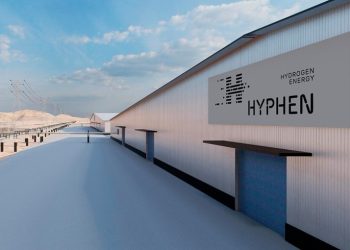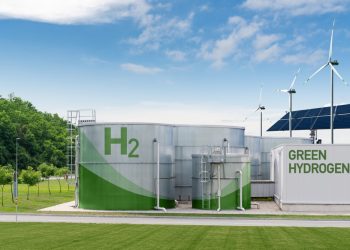
Green iron developer HyIron has announced the completion of its iron production plant, with operations scheduled to commence by the end of February 2025.
According to project engineer Kelvine Amukwaya, construction began between mid-April and early May 2023, and the project is now in its commissioning phase.
“We are currently in the commissioning phase and expect the plant to be fully operational by the end of this month. The main challenges during construction were logistical issues related to transporting machinery and the harsh construction environment,” Amukwaya told Namibia Mining & Energy.
The development comes after HyIron secured an off-take agreement with German steel manufacturer Benteler, which will receive 200,000 tonnes of direct reduced iron (DRI) annually.
The plant features a 12MW electrolyser, the largest in Southern Africa, capable of producing 15,000 tonnes of DRI annually in its first phase.
HyIron plans to commence green iron production in early 2025, initially producing five tonnes per hour. The facility will rely entirely on renewable energy, powered by a 25MW solar plant and 13.4MW of battery storage, operating exclusively during daylight hours.
“The goal for phase one is to produce 15,000 tonnes of green iron annually, offsetting 27,000 tonnes of carbon emissions,” Amukwaya said.
The first phase of the €30-million project is funded through a €13-million (45%) grant from the German government (BMWK), with the remaining 55% financed by private equity.
“We secured the grant through a competitive process where our director proposed a sustainable concept for our operations. His idea won, and we received the funding,” Amukwaya said.
A second phase, planned for 2026, will scale up production tenfold to 200,000 tonnes of green iron per year. This expansion will require 250MW of solar power and 150MW of battery storage, enabling 24-hour operations.
“For the second phase, we will build a plant ten times larger than our current facility. It will require approximately 250 to 260MW of solar PV capacity and 150MWh of battery storage to stabilise our off-grid system,” Amukwaya said.
During construction, HyIron employed over 400 workers and partnered with 60 local companies, injecting more than N$90 million into the Namibian economy. The company ensured that 17% of the project’s value remained in Namibia.







